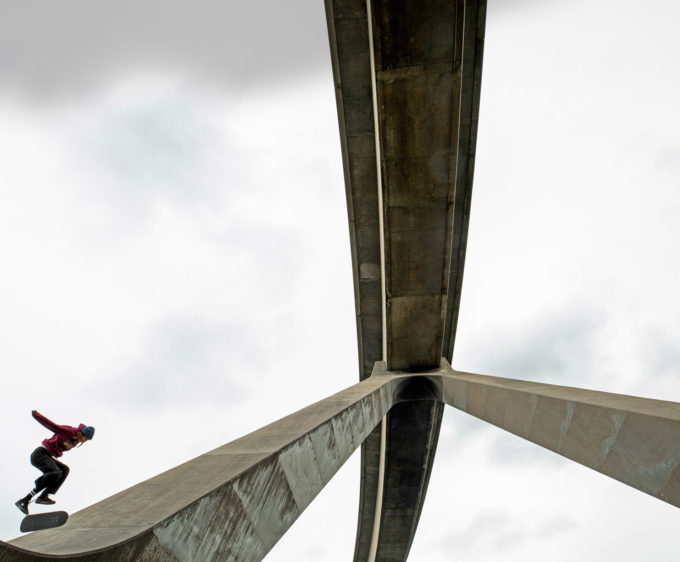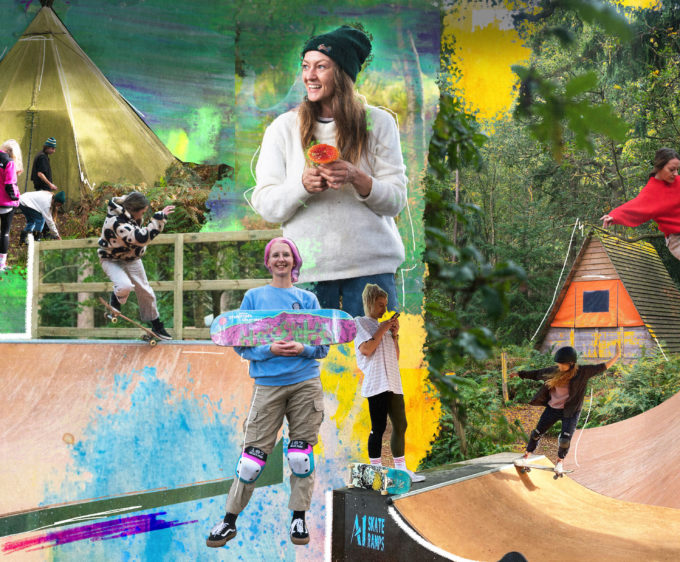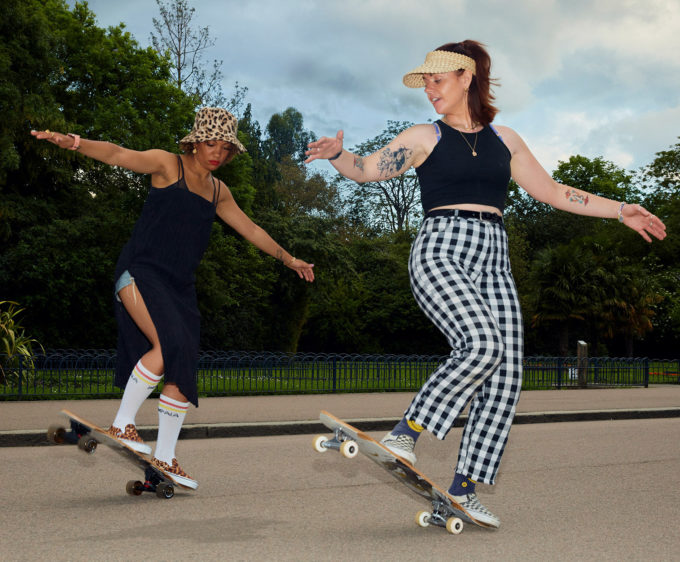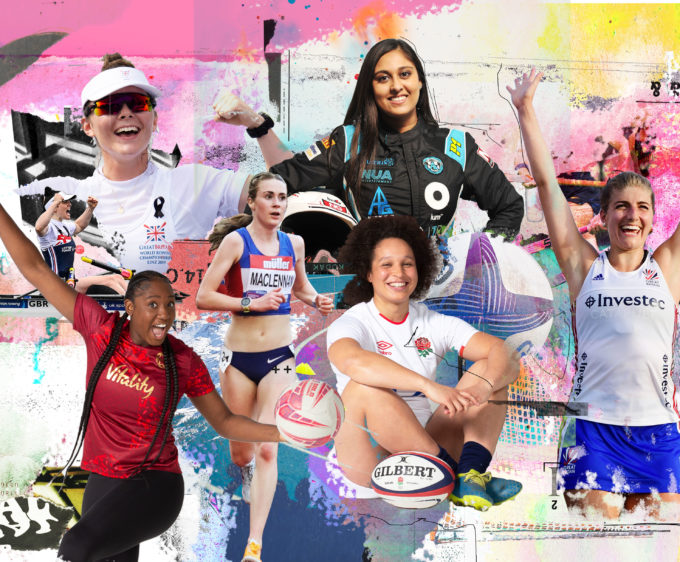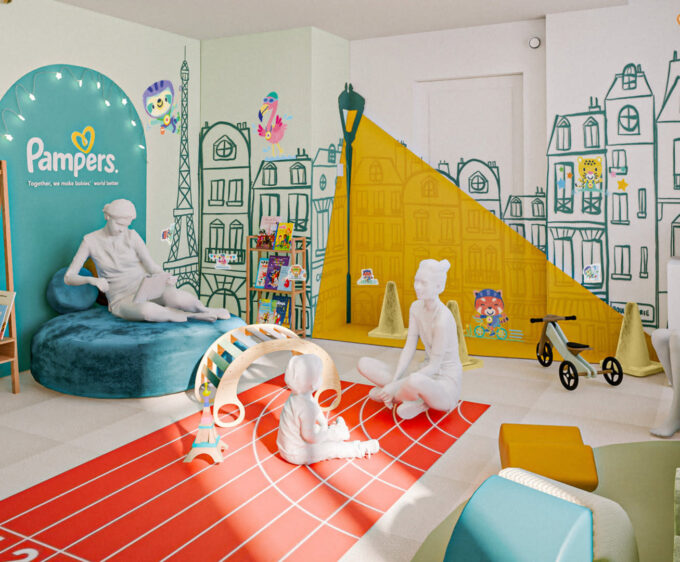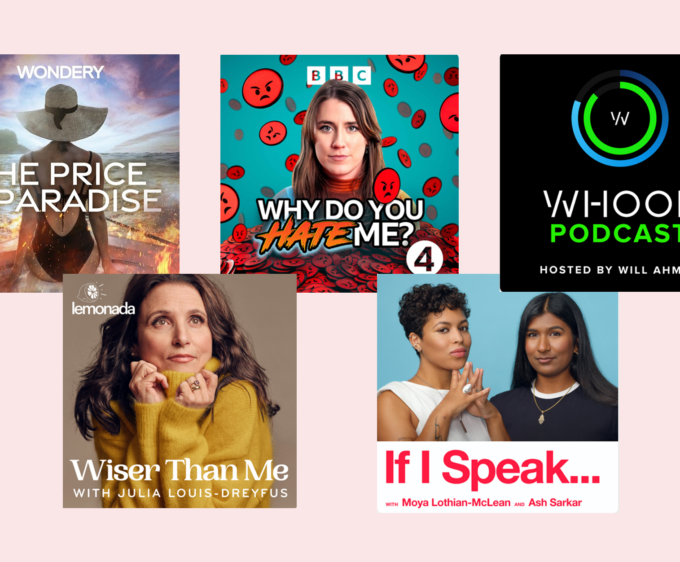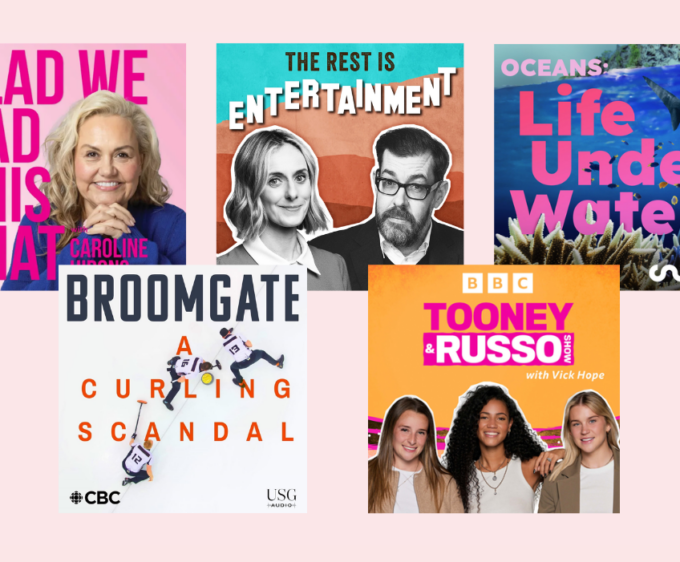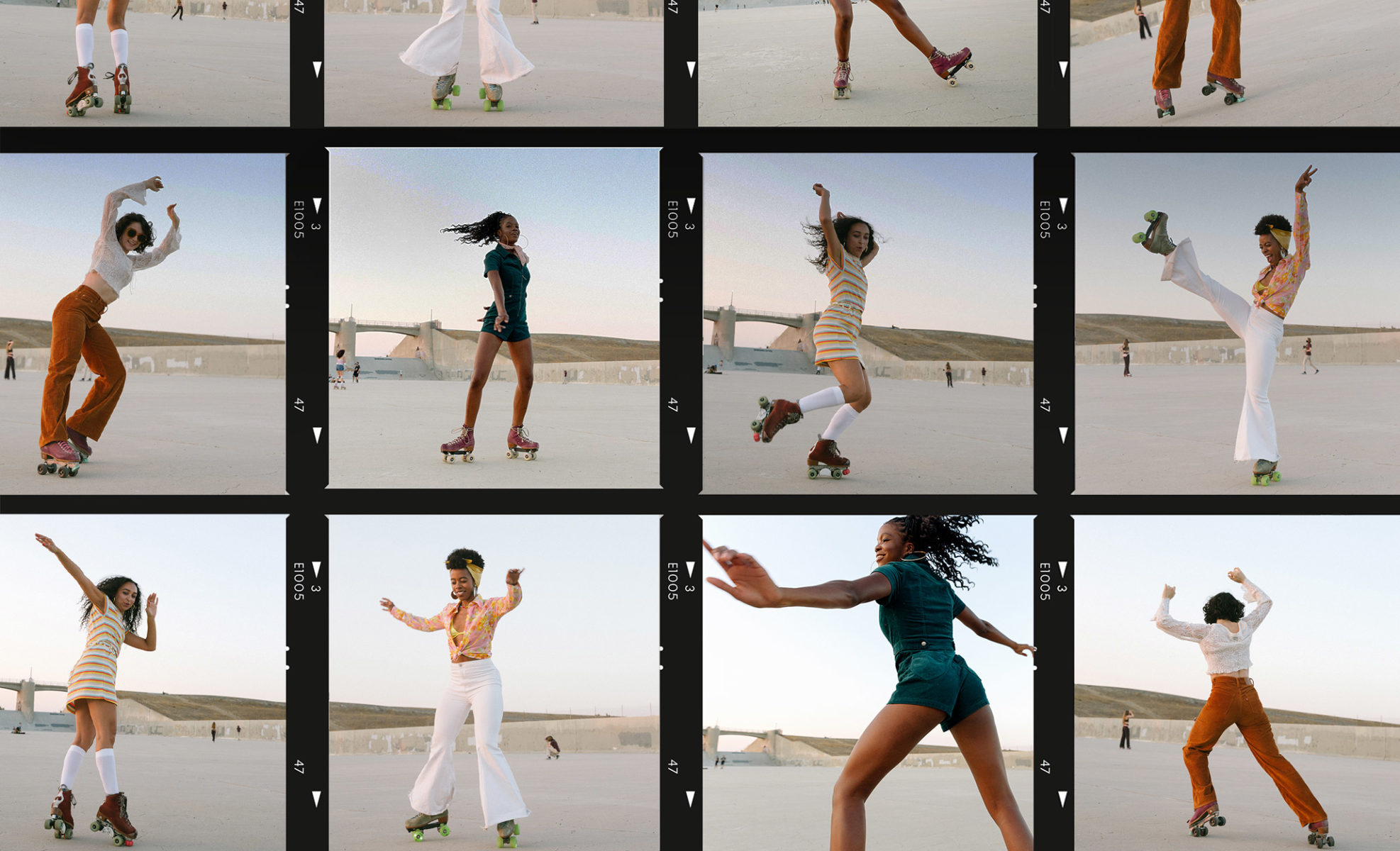
Solidarity On Skates
The roller skating collective Sista Skate celebrating Black joy. We speak to the founder, Kamry James, about healing through movement, her favourite disco tracks and tips for beginners
By Jessica Morgan
Photography by Naohmi Monroe
“Roller skating makes me feel seen,” Kamry James, founder of Sista Skate, tells me, with a grin on her face. “When I first started roller skating, I felt graceful and beautiful – something I’ve always struggled with.”
The sport has gone viral over the last year, with spikes in both Google searches and skate sales. And it’s easy to understand why: the horror of the ongoing pandemic has left us with a drench of nostalgia and searching for activities that both comply with social distancing measures and spark joy. Videos are being shared across TikTok and Instagram, showing young women gliding down the street or parks, wearing enviable ‘70s inspired outfits, with feel-good music set in the background. They are 30-second visions of pure happiness, a precious commodity during uncertain times.
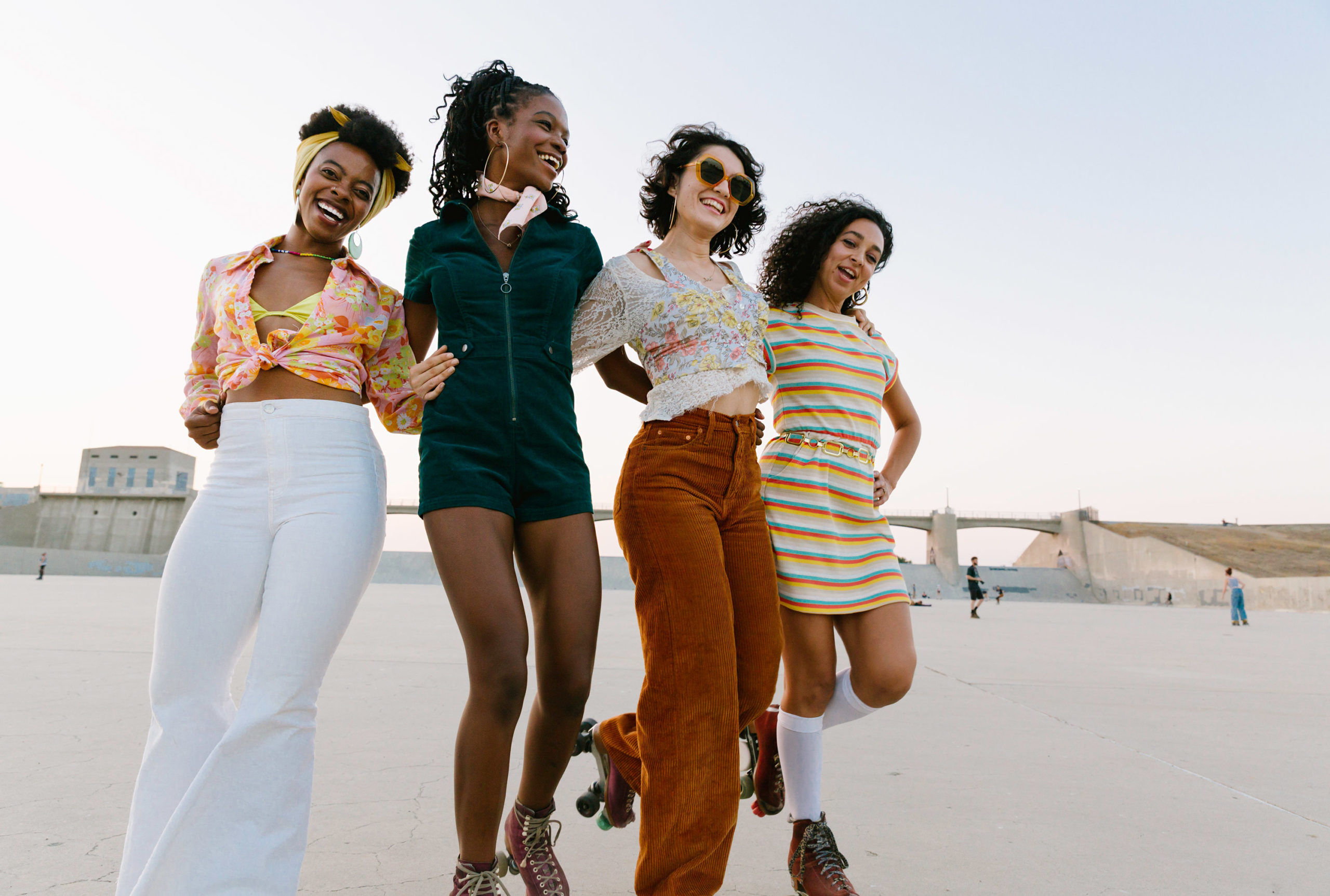
But, as happens with so much of the internet, the trend has been whitewashed, and the Black communities who have kept roller skating alive over the decades have been left out. Just watch the HBO documentary ‘United Skates’ to learn how the Black skating community was part of both the civil rights movement and the emergence of hip-hop, and how skaters have fought against segregation and are still fighting to keep roller rinks open as safe spaces.
Kamry, a stylist, model and roller skating instructor, started skating two years ago following a breakup with her boyfriend and her best friend of 10 years. “I wanted to find something that brought me joy, something other than my friends and work,” she tells me. “People always used to ask me, ‘what do you do for fun?’ And I’d say ‘I like to work.’” Kamry used to skate at her local ice rink as a child, but once she tried roller skating in 2017, she immediately fell in love with it. But paying $25-$30 to skate at local roller rinks was not affordable. “Even though the sessions lasted for around three hours, the cost adds up. When you start roller skating for the first time, you become addicted to it. You want to skate every single day. I would dream about it, it would make me so happy.”
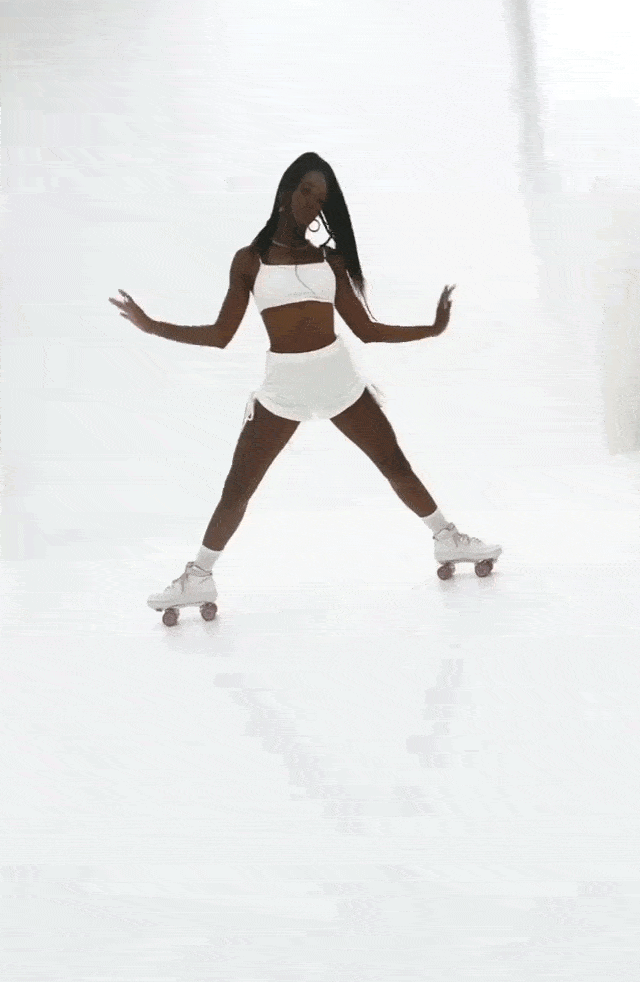
So Kamry launched Sista Skate in 2019, a safe space for Black women to skate without judgement. “Sista Skate started during a time when I needed community and I wanted to give back to my community,” she says. “During a time of racial reconciliation, and the George Floyd protests in 2020, I started protesting. But it was hard for me mentally. LA Police don’t play games with protesters. It made me anxious, but I knew I wanted to give back to my community in any way that I could, without going to the protests.”
When Kamry was furloughed from her job, she didn’t have any money to donate to Black Lives Matter causes. So she launched virtual roller skating classes over Zoom. “I wanted to give my time and talents to raise money for Black Lives Matter. I started teaching skate classes online. At first, I was teaching classes all day and there would be at least five people per class.” Now Sista Skate has grown to four members: Cha Cha, Ariana, Kelsey and Guy, and Kamry, and anyone who attends the classes are automatically called ‘Sista Skaters.’
COMMUNITY
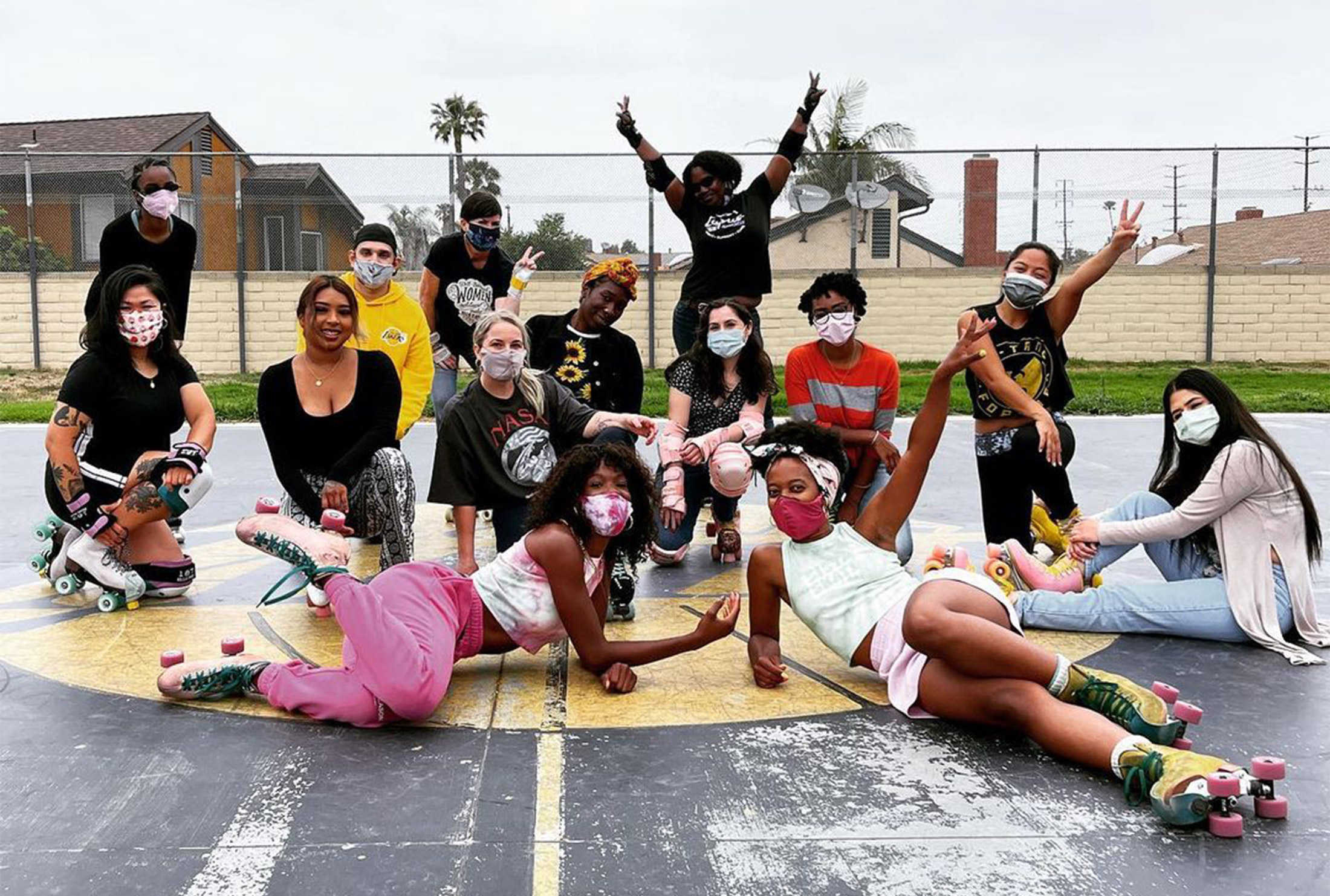
The classes are for beginners and designed to teach skaters the basics, as well as turn those moves into a dance routine, which Kamry said helps to build confidence. “Our instructors, Kelsey and Francis, are great at boosting people’s confidence,” she adds. “Kelsey turns her classes into a dance so she’ll teach certain moves. At the end of the class, she’ll put all those moves together into a routine.”
Francis then leads the class with lessons on ‘how to let go of fear,’ by teaching everyone how to fall properly. “That is what everyone is afraid of. If you have a fear of falling, you’re going to be hesitant to move, so you’re going to mess up and it’ll be easier for you to fall. Francis teaches you how to fall properly on your elbows and butt. At the end of the class, we all come together as a group and we skate around, we dance and film each other.”
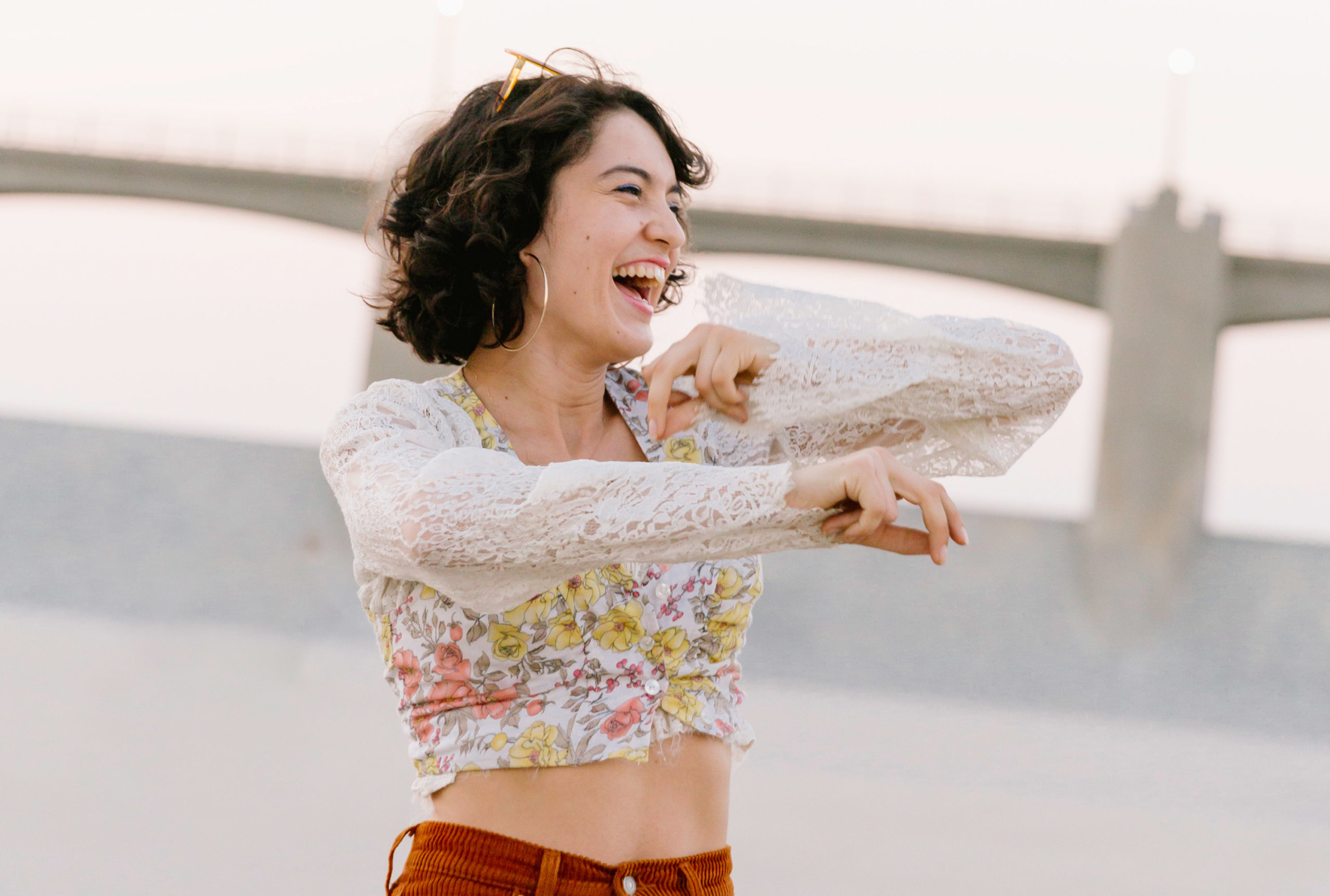
COME TOGETHER
Sista Skate has provided a space for Black and brown women to come together and live unapologetically, which is something Kamry wants to continue to champion. “As a Black woman, I’m either sexualised by the male gaze, or I’m seen in a certain light because I’m the only Black woman in the room, so all eyes are on me, or I feel like I’m a ghost because when I’m grocery shopping, people push right past me,” she says. But when she’s roller skating, she loves the positive attention. “I love when little girls see us skating around and their eyes get so big and excited, thinking that could be them.”
For others in the group, Sista Skate has provided a safe space to promote healing. The collective works closely with therapists and instructors, and launched a women’s healing event where everyone could talk about their trauma in a safe space. They taught classes, offered giveaways and prizes, and worked with vendors to sell CBD drinks.
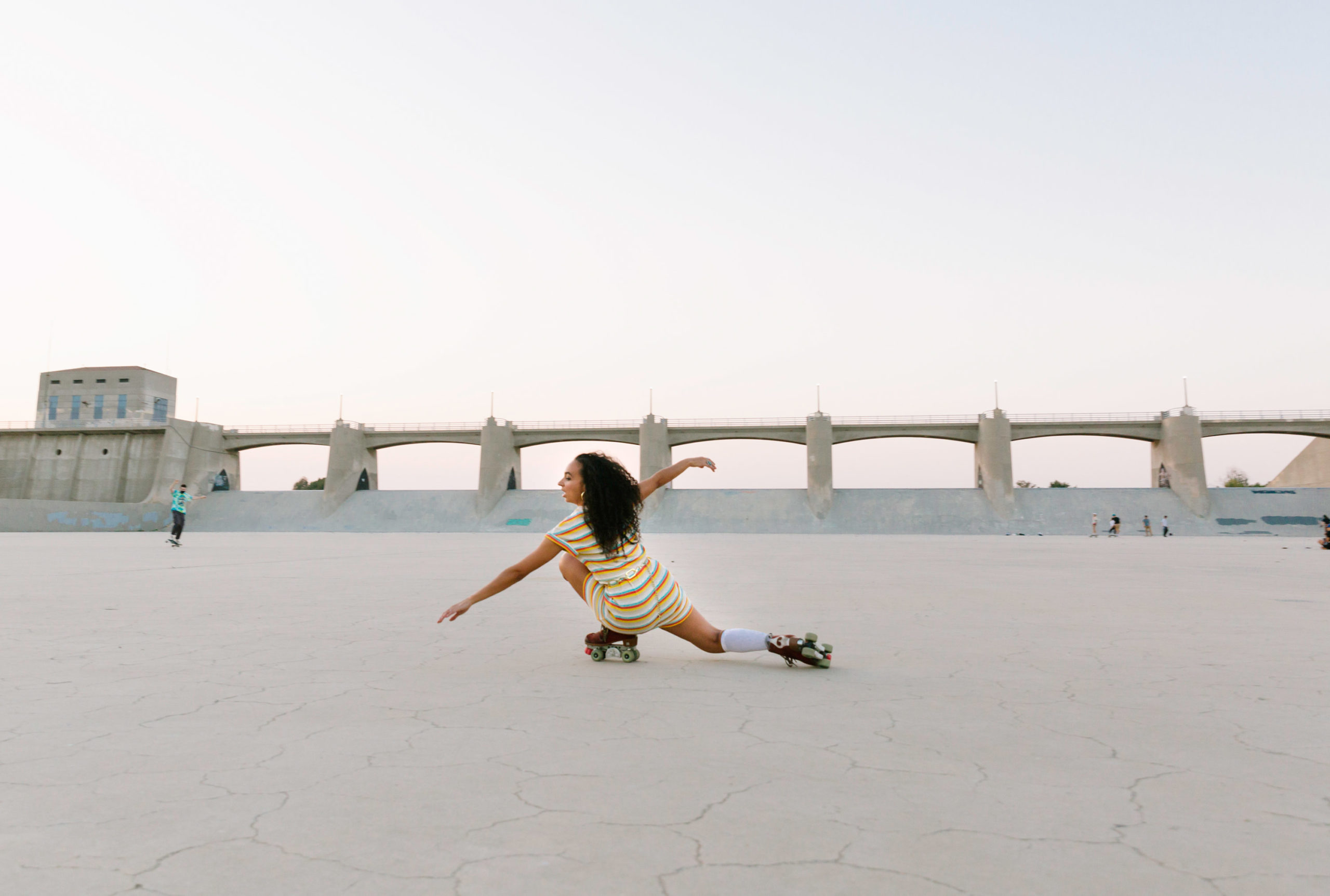
When Kamry first started teaching classes, one skater expressed her gratitude for the space. “A girl told me that the family she was living with was emotionally abusive. We both cried together. She told me how grateful she was for the classes and how, for that one hour of the day, she could escape and find joy and peace in her life,” Kamry says. “That’s what skating does. It’s not just exercise for your mental health but it gives you a goal to reach,” she continued, “You feel free, you feel like you’re flying. You’re dancing but you’re also working out. It’s like being in the club, but you’re actually outside and exercising.”
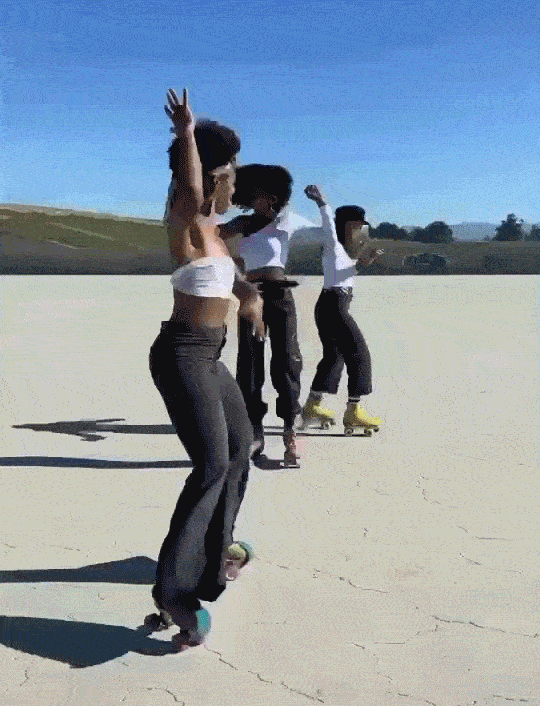
But last year was a dark year for Black women. Following the brutal murder of George Floyd in Minneapolis, the Black Lives Matter movement dominated headlines and Black people lined the streets worldwide to protest for racial equality. “It was a time for Black women to take a break, not just from normal issues. During a pandemic, we’re also reminded that every day we are the most targeted group in America when it comes to racial violence. This summer was very traumatic for Black people and Black women especially,” Kamry adds. Sista Skate wanted to contribute to this conversation too, so they teamed up with Rise and Skate, another collective that wanted to bring Black and brown issues to the fore. “Being Black in the current climate, we needed something for Black women to just have fun, be heard and feel like they have a safe space for healing.”
Cha-Cha and A-Bomb, the co-founders of Rise and Skate, had connections with Black Lives Matter and would go out and protest on their skates. “Protesting is different when you’re on skates,” Kamry continues. “It’s comforting for those who are scared to march on the streets. Not everyone has the strength to do that, but when you put your skates on, you’re conquering a fear. You feel like you can go out there and speak on topics that not everyone has the courage to speak on. It’s transformational.”
COURAGE
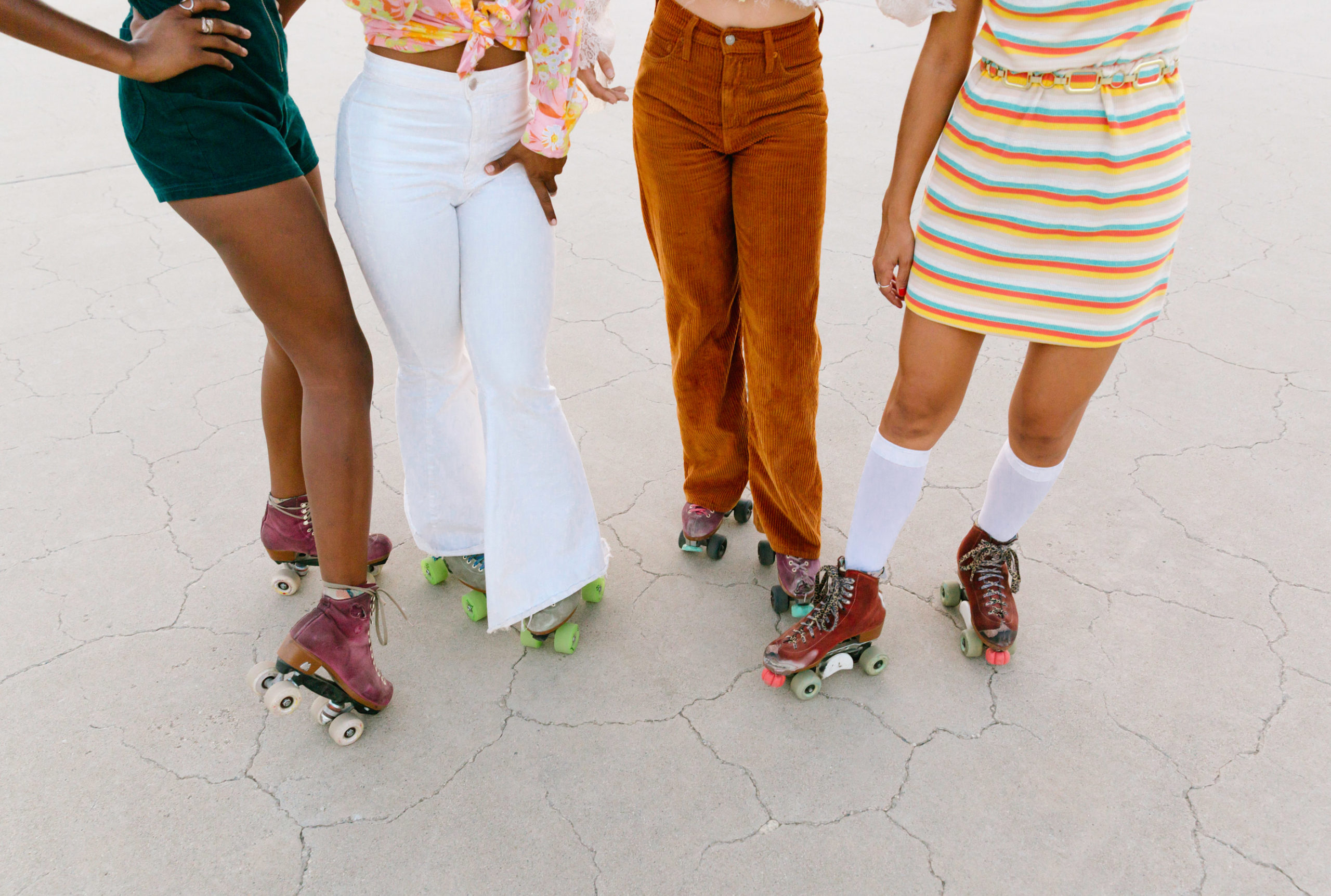
Over 100 skaters came to the protest on Long Beach last year. “I was shocked by the turnout. Everyone had skates. I didn’t even know that many people had skates!” Kamry said. The group were protesting in support for a movement called #FreeTiana. Tiana, a local woman, had been protesting that summer and had been charged by police. Hundreds of women came out for her in solidarity. “She was this young Black girl who just wanted to do right by her community. We were doing a slow walk of solidarity on Long Beach, and then we saw her! We all cried and hugged her. We didn’t even know this woman; we were just using Instagram to generate awareness – and there she was. It’s amazing that we were able to make an impact of that magnitude.”
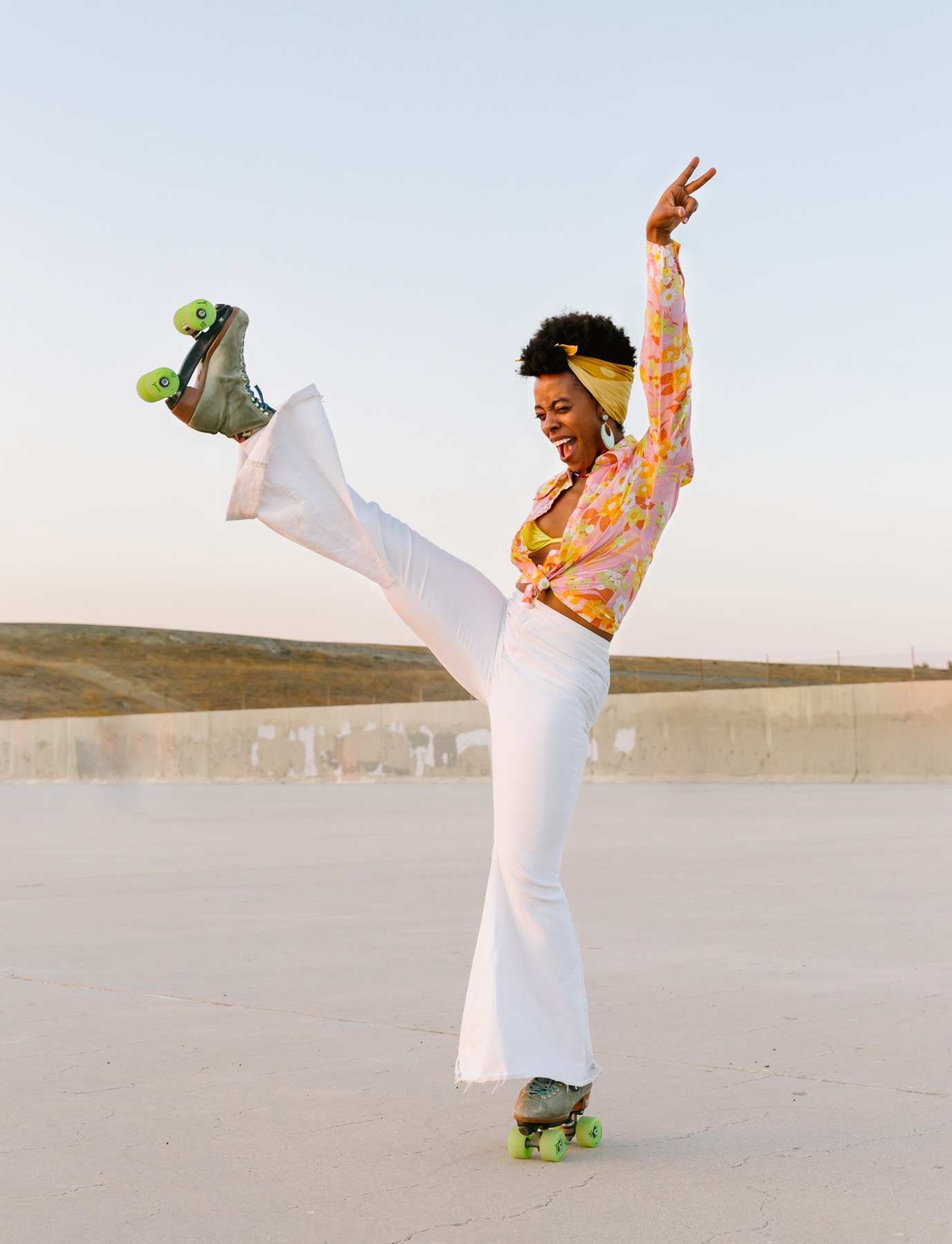
Sista Skate has an Instagram page, which has garnered over 5,000 followers, and the website is underway. Kamry says she also hopes to launch a newsletter for skaters to connect with others. While Sista Skate, who are based in LA, can enjoy the plethora of skating locations, such as Venice Beach, Long Beach and the smooth roads in the city, Kamry says that if you’re not in LA, you can still find the perfect spot to skate. “The best places to skate are roof top garages, schools, basketball courts, tennis courts, or outdoor hockey rinks. We’ve been taking over all of these places. Just be respectful because there are going to be people who aren’t going to like it. I always try to be kind, but I have to remind them that this is a public space so I’m allowed.”
Safety is also paramount for this group. While LA, like anywhere in the world, can be a dangerous place for women to walk, run or skate alone, Kamry recommends that you always head out with a friend and come prepared. She added that although she hasn’t had much hostility from men, people should be aware of their surroundings. “We don’t really get push back, it’s not really the time to be coming after Black women right now, and if they did, they would hear from me,” Kamry laughs.

Music is also a huge part of skate culture, and Kamry and her Sista Skaters always skate to music. “Disco was made for roller skating, so why not listen to it? I love rap music but there’s some songs that don’t go with the flow of roller skating,” she adds, “But 90s R&B, 70s Donna Summer and The Bee Gees all work well. And I’m really into new wave music, like Kali Uchi. Victoria Monet’s ‘Experience’ is a perfect song for roller skating. She inspired my birthday when I bought a big afro wig and a disco ball!”
While rolling down the streets in a group may attract attention, Kamry says people tend to relax when they see the skates. “I can understand why people get scared when they see all of us, but it’s hard not to love watching us on skates, when everyone is determined to have a good time.”
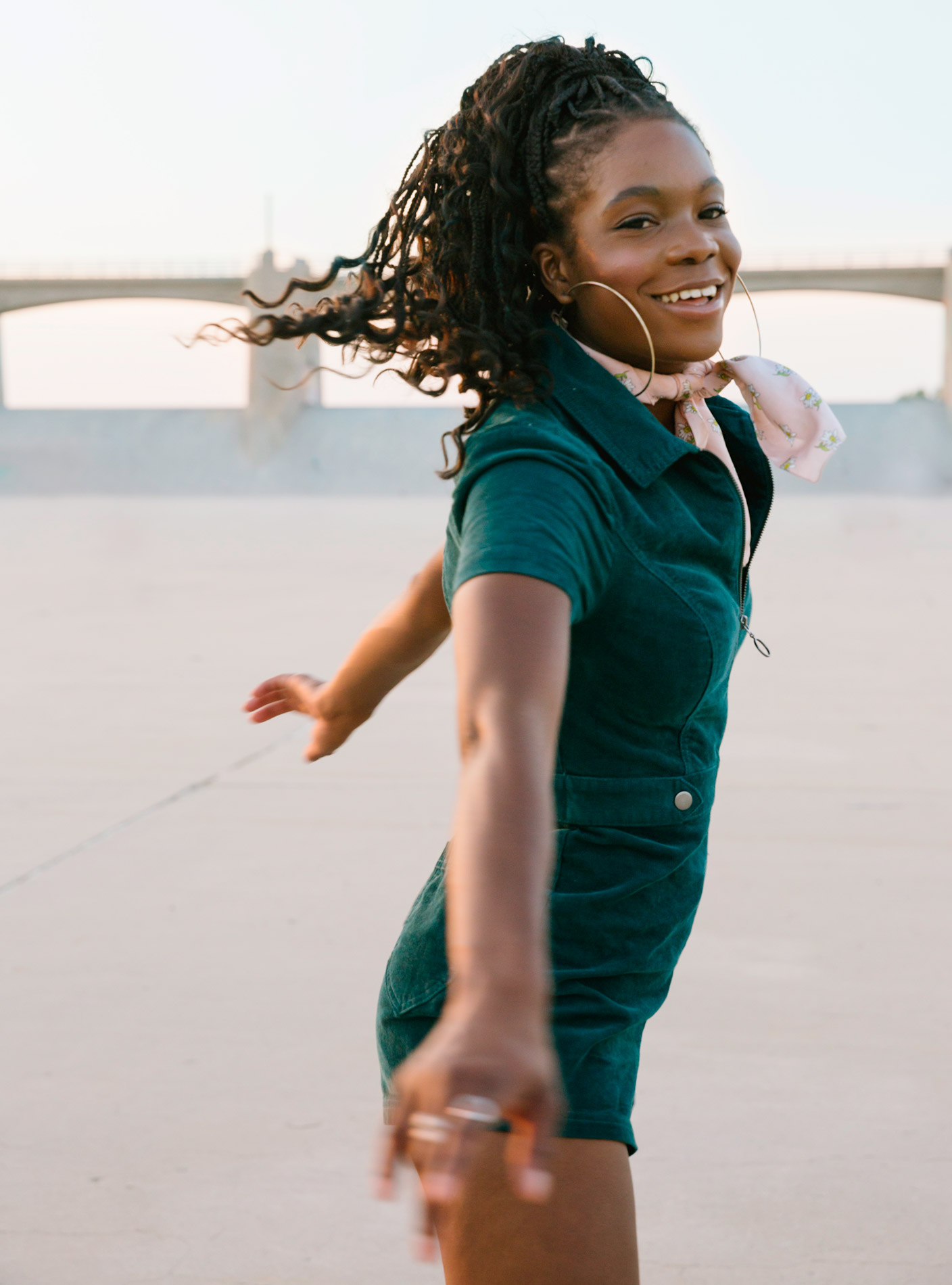
Kamry’s top tips for roller skating:
1. Always be aware of your surroundings – especially pedestrians and cars.
2. Bend your knees, drop your hips and look where you’re going. Your eyes and head will control the rest of your body.
3. Posture is everything. If you’re looking down and your shoulders are tipped forward, it’s easier to fall.
4. Find a safe space and somewhere smooth to skate – a tennis court, basketball court, car park or school grounds.
5. Your body should be squared. Your shoulders need to be over your hips and your hips over your knees.
6. Wear wrist guards and knee pads. A lot of new skaters don’t know how to fall properly and wrists are delicate.
7. Carry a broom in your car to sweep pebbles (if you drive).
8. Pack all the gear: pepper spray, a first-aid kit and tools to fix your roller skates.
9. Take a friend!
10. Play disco music!
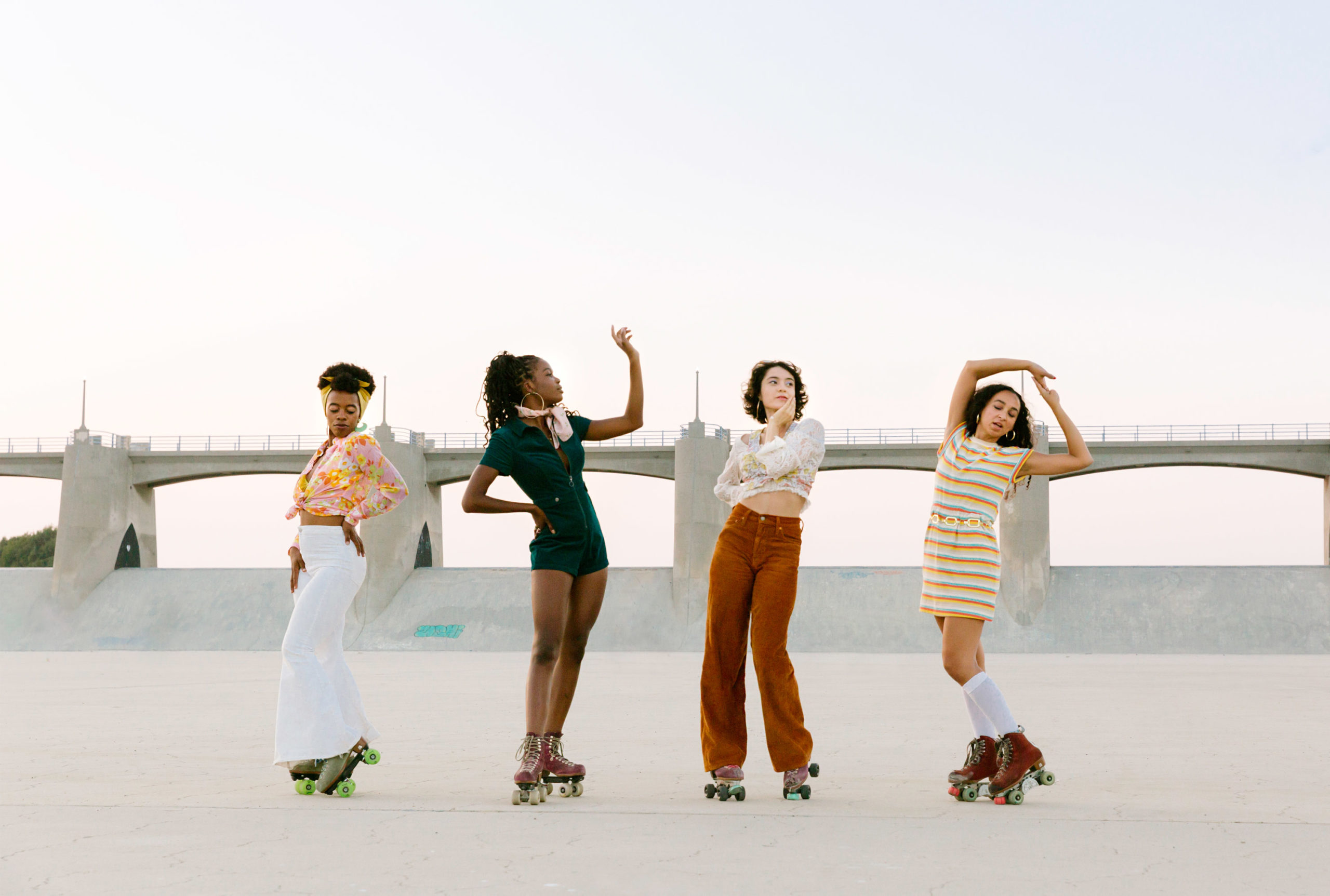
Editorial Design Root
